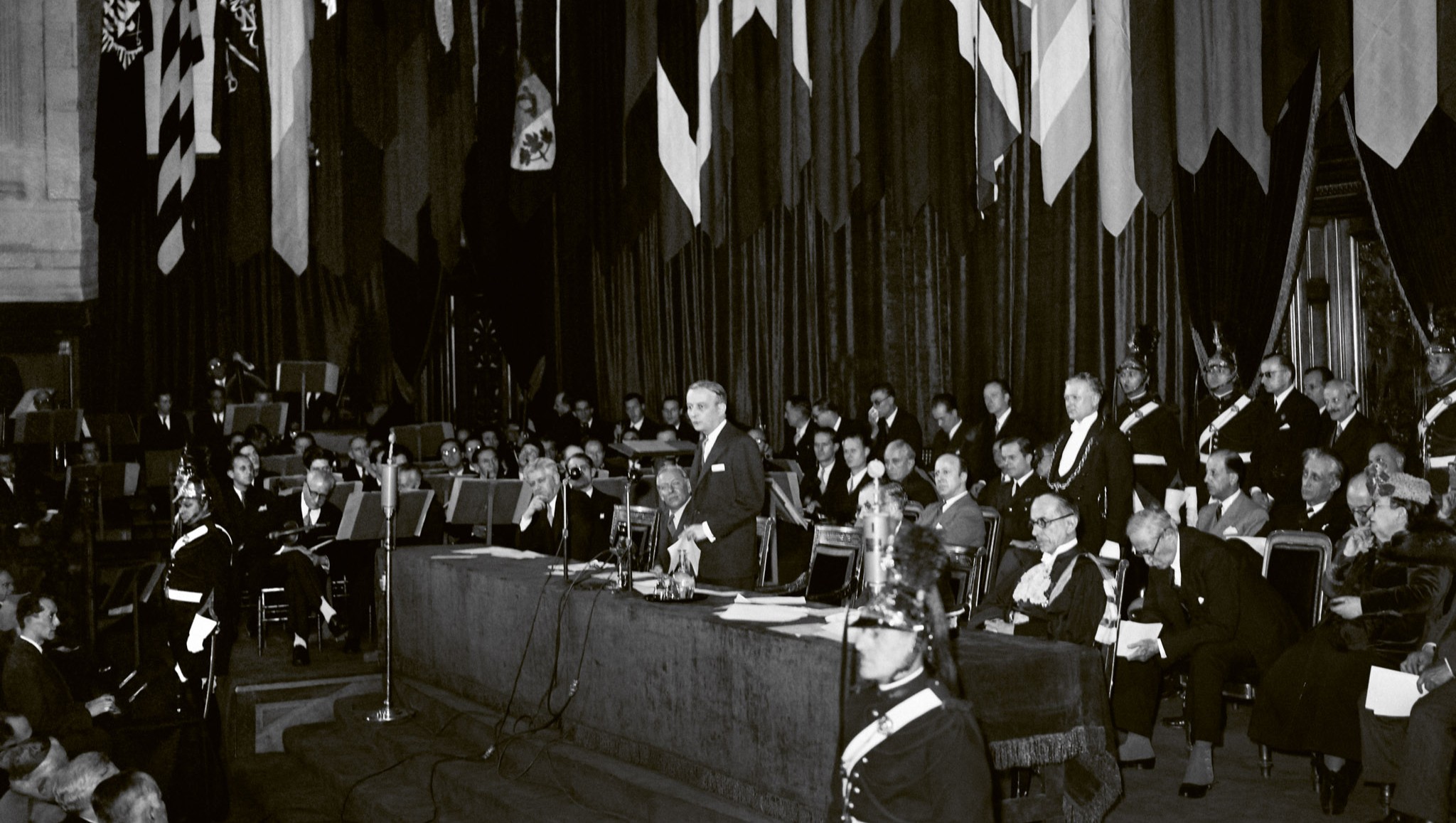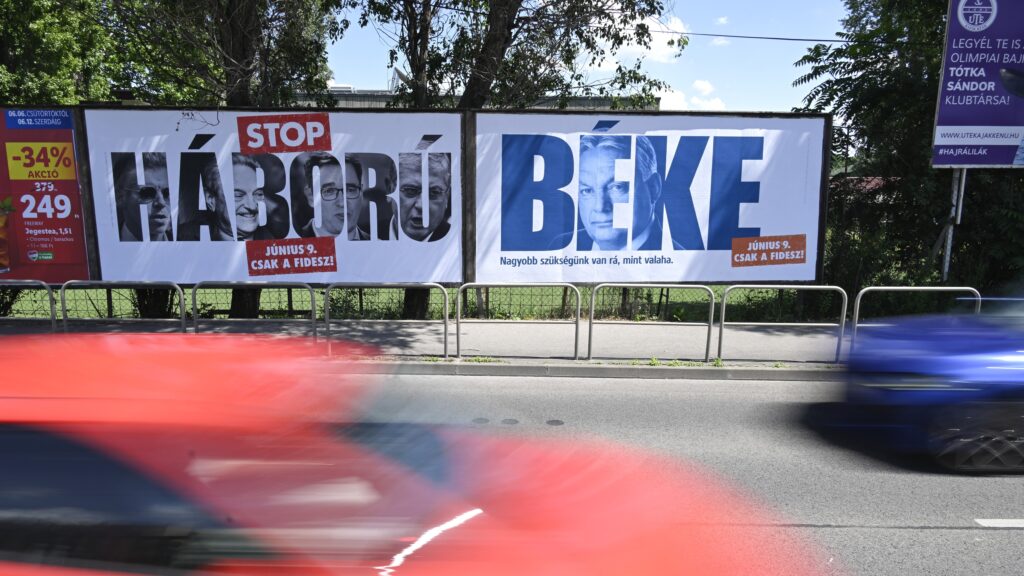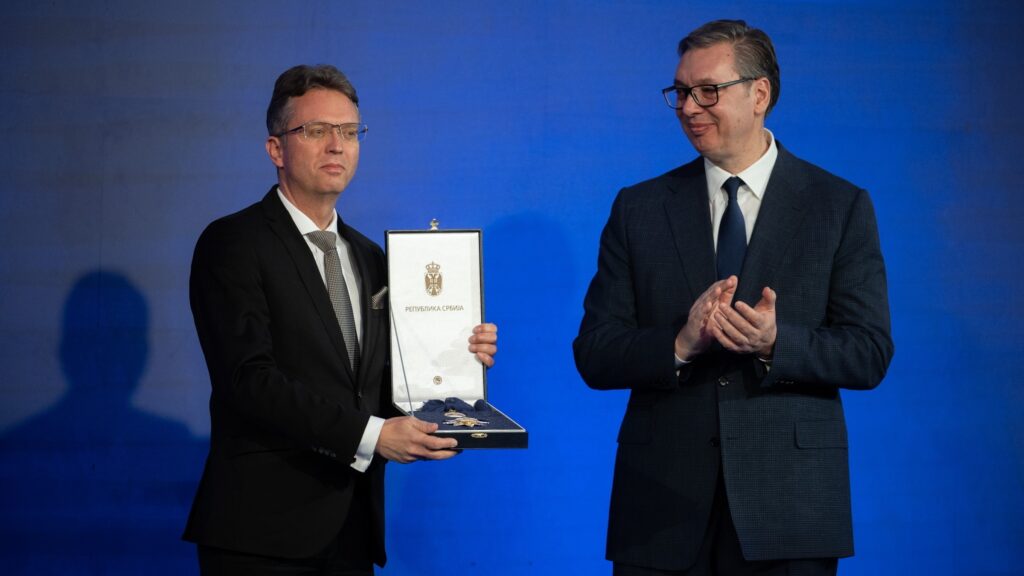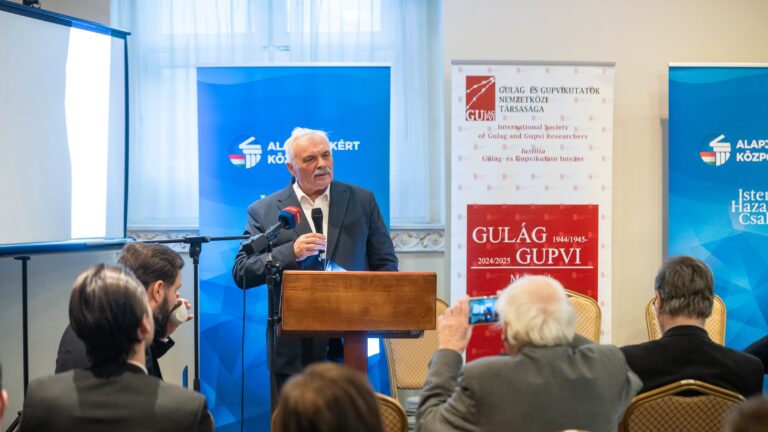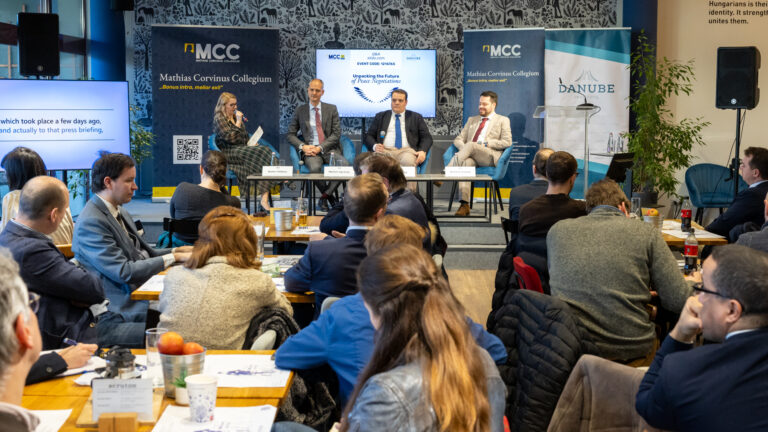This article was originally published in Vol. 5 No. 2 of our print edition.
Julian Huxley’s Evolutionary Humanism and the Transnational Progressive Capture of the Global Human Rights Movement
To place in proper context the 75th anniversary of the 1948 Universal Declaration of Human Rights (UDHR) and its impact, it is important to examine the degree to which this landmark document facilitated the implementation of the evolutionary humanism of Julian Huxley, the first director general of the United Nations Educational, Scientific and Cultural Organization (UNESCO). UNESCO’s programming in the areas of education and the social and human sciences, combined with the work of the UN Office of the High Commissioner on Human Rights and international human rights treaty body committees, transformed the aspirational UDHR into a ‘living’ instrument for realizing Huxley’s progressive vision.
UNESCO’s Role in the Drafting of the UDHR
UNESCO’s Constitution was adopted in 1945 ‘on the conviction that the intellectual and moral solidarity of humankind, and the respect for justice and human rights were essential for lasting peace’.1 In 1946, Huxley published his 60-page blueprint for UNESCO, titled UNESCO: Its Purpose and Its Philosophy (the ‘UNESCO Blueprint’).2 In it, Huxley made the argument that a special international agency was needed to help the world overcome its many divisions. Huxley believed that this would only take place if what he called a ‘world philosophy’ could be developed through cultural understanding, education, and scientific collaboration. For Huxley, UNESCO was to be this unique international agency, charged with overseeing the emergence of what he described as a ‘single world culture, with its own philosophy and background of ideas’.3
During the proceedings of the first UNESCO General Conference in Paris, held in 1946, UNESCO established several major priorities for the coming year, one of which instructed the Secretariat to ‘clarify the principles on which might be founded a modern declaration of the Rights of Man’.4 This was precisely the mandate that Huxley needed. In his view, a decisive intervention in the field of human rights would quickly establish UNESCO as the leading UN agency, the fulcrum of the post-war international system, with a unique role as the guardian of what he called a ‘unifying and unified’ global culture.5 The unit within UNESCO responsible for carrying out this mandate was the philosophy subsection of the inaugural Sub-commission on Philosophy and Humanistic Studies.
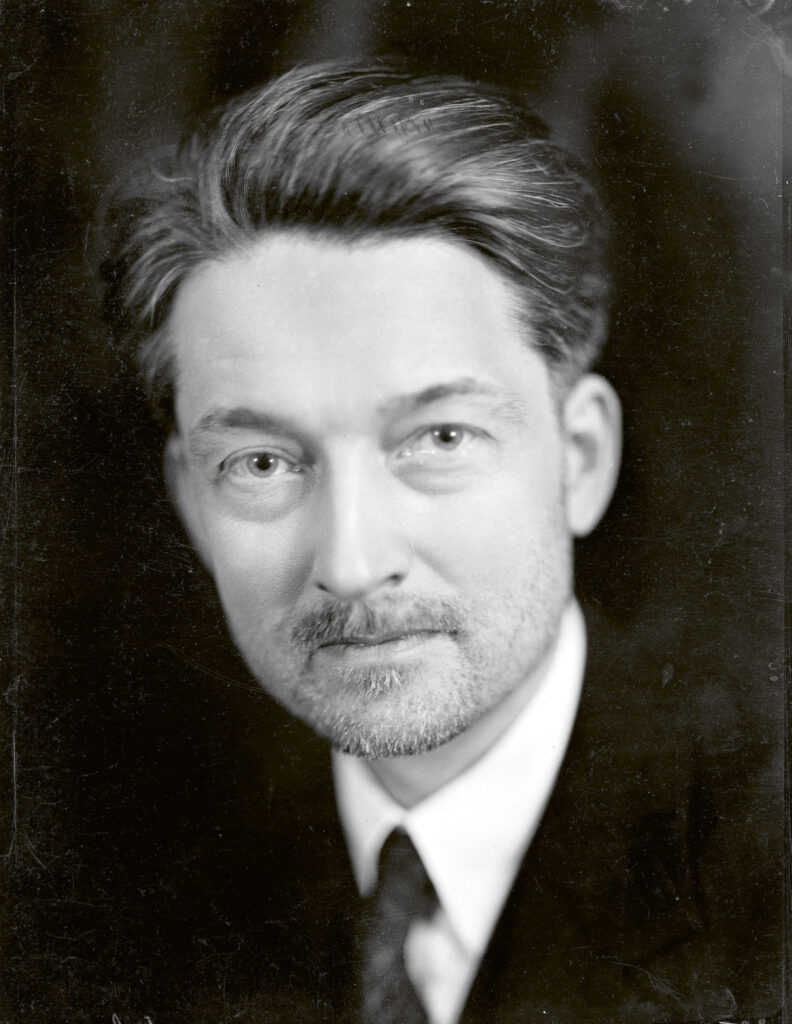
Huxley and his team worked quickly to design a procedure for their work in support of a declaration of human rights, as they worried their efforts would be overshadowed by the much more high-profile labours of the new UN Commission on Human Rights (CHR). To help establish the philosophical principles of human rights, UNESCO decided to conduct a global survey among a diverse group of intellectuals, political leaders, theologians, social activists, and others. To do this, they prepared two documents: the first, a memorandum, provided a short history of national human rights declarations and outlined the important stakes involved in drafting an international declaration; and the second was a list of specific human rights and freedoms that respondents were asked to consider in their replies.6 In March and April 1947, between 150 and 170 of these surveys were dispatched to a list of social institutions, state organizations, and individuals. UNESCO eventually received around 60 responses to the survey.
In late June of 1947, UNESCO convened an expert committee in Paris to evaluate the responses and produce a report to be sent to the CHR, so that it could use UNESCO’s findings as the basis for the eventual human rights declaration. On 25 July 1948 (six months before the adoption of the UDHR), UNESCO published the resulting Human Rights: Comments and Interpretations, with an introduction by the French-Catholic philosopher and French Ambassador to UNESCO, Jacques Maritain.
In his main intervention in the UNESCO volume, titled ‘Philosophical Examination of Human Rights’, Maritain warned that, although men may apprehend ‘a certain number of practical truths about their life together, on which they can reach agreement’, those truths ‘derive, according to types of mind, philosophic and religious traditions, areas of civilization and historical experience, from widely different, and even absolutely opposed, theoretical concepts’.7 In Maritain’s view, though it would be possible to arrive at a joint statement of the various human rights, there would be ‘the danger either of seeking to impose an arbitrary dogmatism, or of finding the way barred at once by irreconcilable divisions’.8 He wrote:
‘While it seems eminently desirable to formulate a universal Declaration of Human Rights which might be, as it were, the preface to a moral Charter of the civilized world, it appears obvious that, for the purposes of that declaration, practical agreement is possible, but theoretical agreement impossible, between minds.’ 9
‘The fundamental principles in the UDHR should be used to respect and protect human rights in the national context, not to undermine national identity and sovereignty’
For Maritain, the UDHR could only be an aspirational preface to a global moral charter, not the blueprint for global human rights governance. In his view, the idea of human rights must be rooted in the concepts of the nature of man and human society. Only in such a context can human rights ‘impose moral requirements universally valid in the world of experience, of history and of facts, and can lay down, alike for the conscience and for the written law, the permanent and the primal and universal norms of right and duty.’10
Relating to the moral requirements of an ideal order rooted in the ‘nature of man’, six years earlier, in his 1942 classic Education at the Crossroads, Maritain had written that ‘a person possesses absolute dignity because he is in direct relationship with the realm of being, truth, goodness, and beauty, and with God, and it is only with these that he can arrive at his complete fulfilment.’11 When it came to the philosophy that should underpin any universal declaration of human rights, Maritain’s integral humanist view of the nature of man and human society stood in sharp contrast to the evolutionary humanism of UNESCO Director General Julian Huxley.
Julian Huxley’s Progressive Roadmap for the UDHR
The implication of the first director general of UNESCO being the leading proponent of a progressive ‘evolutionary humanism’ cannot be understated, especially due to the UNESCO Secretariat’s role in promoting the philosophical case for the UDHR. In his 1927 book Religion without Revelation, Julian Huxley explained how traditional religions ‘had become static, too concerned with preserving dogmas and rituals, and were no longer in tune with the new scientific understanding of evolution that had revolutionized such fields as geology, biology, physics, palaeontology, and cosmology.’12 In the book’s final chapter, titled ‘Evolutionary Humanism as a Developed Religion’, Huxley explained how it was clear that twentieth-century man ‘needs a new organ for dealing with destiny, a new system of religious beliefs and attitudes adapted to the new situation in which his societies now have to exist.’13 In his view, the ‘new system’ for humankind needed to be an evolutionary one ‘adapted to cope with his knowledge and his creative possibilities, and this implies the capacity to meet, inspire, and guide change’.14 Consistent with this view, 19 years later, in his UNESCO Blueprint, Huxley maintained that ‘it is essential for UNESCO to adopt an evolutionary approach’.15
In the UNESCO Blueprint, Huxley observed that, over the past few decades, ‘it has been possible to develop an extended or general theory of evolution which can provide the necessary intellectual scaffolding for modern humanism’.16 As ‘man was now the sole trustee of further evolutionary progress,’ an evolutionary approach ‘is indispensable in enabling us to pick out, among the chaotic welter of conflicting tendencies today, those trends and activities and methods which UNESCO should emphasize and facilitate.’17 According to Huxley, humankind had experienced an increase in the capacity ‘to appreciate values, to appreciate experiences that are of value in their own right and for their own sake, to build on knowledge, to work through purpose, and to inject ethical values into the process of social evolution itself’.18 In Huxley’s view, any eventual declaration of the ‘rights of man’ should include ethical values that ‘become a part of the mechanism of change and evolution.’19 The endorsement of these ‘intrinsic values’ would become ‘the most important characteristic of progress’, as they would consist of ‘a common pool of ideas which is self-perpetuating and itself capable of evolving’.20
Huxley’s UNESCO Blueprint warned that nationalism was antithetical to building a system of universal values to facilitate evolutionary progress. He wrote that ‘several separate or competing or even mutually hostile pools of tradition cannot possibly be so efficient as a single pool common to all mankind’ and that ‘the best and only certain way of securing this will be through political unification’.21 In his view, UNESCO ‘must envisage some form of world political unity, whether through a single world government or otherwise’.22 In this way, UNESCO’s educational programme ‘can stress the ultimate need for world political unity and familiarize all peoples with the implications of the transfer of full sovereignty from separate nations to a world organization’.23
Likewise, because, according to Huxley, ‘there is nothing immutable and eternal about ethics’, UNESCO ‘cannot be neutral in the face of competing values’, including those consistent with natural law.24 UNESCO ‘will accordingly relate its ethical values to the discernible direction of evolution, using the fact of biological progress as its foundation, and shaping the superstructure to fit the principles of social advance’.25 In Huxley’s view, one of the major tasks of UNESCO’s Philosophy Division (responsible for the UDHR project) would be ‘to stimulate, in conjunction with the natural and the social scientists, the quest for a restatement of morality that shall be in harmony with modern knowledge and adapted to the fresh functions imposed on ethics by the world of today’.26 In the following decades, the rights listed in the UDHR would become the impetus for developing this ‘social science-policy nexus’ that would lead to the social transformations contemplated by Huxley’s evolutionary humanism.
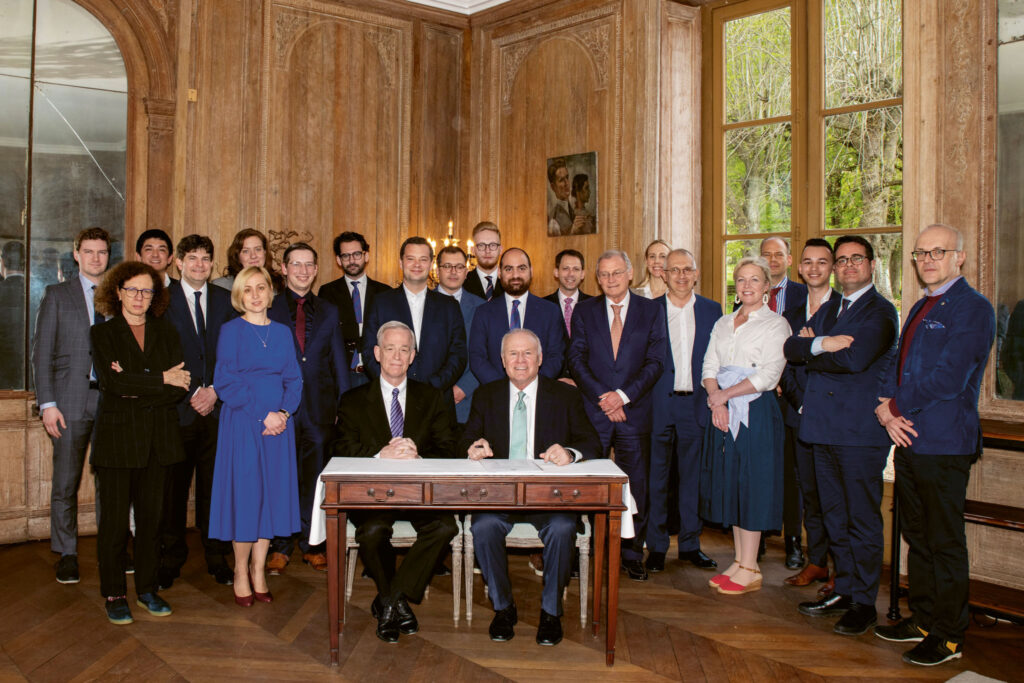
UNESCO’s Reliance on the UDHR to Promote Evolutionary Humanism and Transnational Progressivism
By 2010, UNESCO’s implementation of Huxley’s evolutionary humanist philosophy, as reflected in the UDHR, had resulted in transnational progressivism—a concept historian and policy analyst John Fonte uses to describe an umbrella movement that seeks to take ultimate political power away from parliaments and legislative bodies accountable to national electorates in sovereign states, and to vest it in courts, bureaucracies, non-governmental organizations, and various transnational bodies that are accountable only to themselves or to other transnational bodies.27 This is a phenomenon the author of this article witnessed as the US State Department’s appointee as chairman of the Social and Human Sciences Committee for the US National Commission for UNESCO from 2005 to 2008 and as an official US delegate to six related international human rights negotiation conferences.
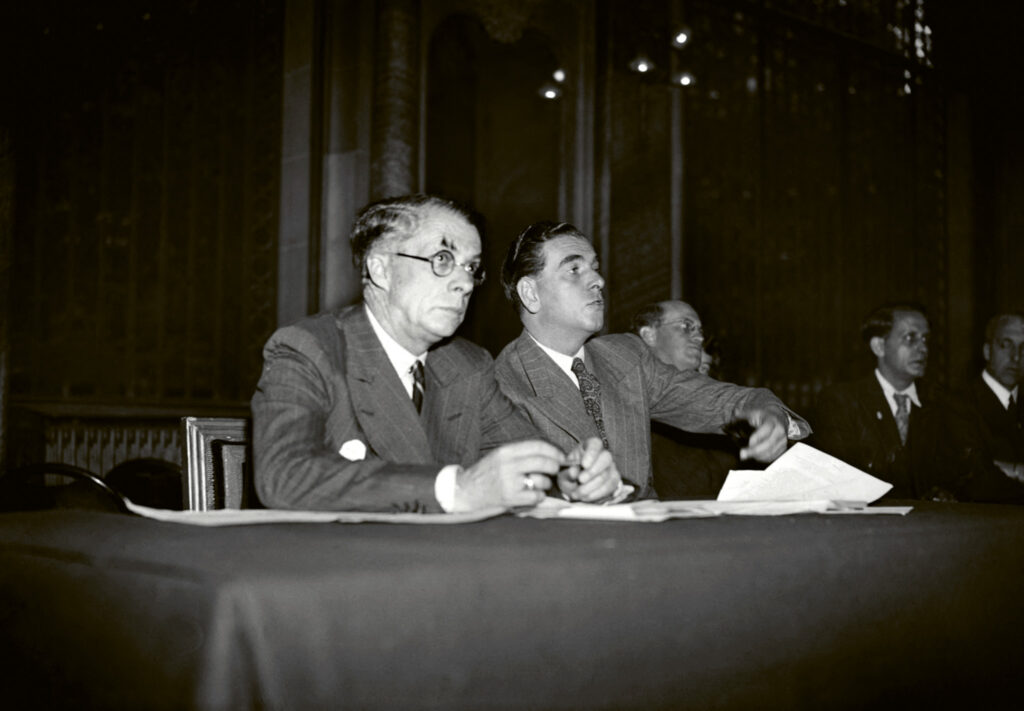
Consistent with Huxley’s progressive evolutionary vision for the UDHR and inspired by the United Nations Development Programme’s 1994 Development Report,28 beginning in 2000, UNESCO’s Social and Human Sciences Sector (UNESCO SHS) launched a human security programme, the nature, projects, challenges, and outcomes of which UNESCO SHS detailed in a 2008 report titled Human Security: Approaches and Challenges (the UNESCO Human Security Report).29 Initially, UNESCO’s human security programme focused on meeting ‘specific needs, sometimes very urgent, of individuals and communities confronted by extreme poverty, conflict and post-conflict situations, or environmental degradation’. Yet, echoing principles set forth by Huxley in the UNESCO Blueprint, UNESCO later adopted a broader interpretation of human security: ‘At the same time, we are speaking of fundamental freedoms, as reflected in the United Nations Charter. We are also talking about human dignity, in the spirit of the Universal Declaration of Human Rights, along with the intellectual and moral solidarity of mankind, as recalled in the UNESCO Constitution’.30
In 2005, after closely examining the UNESCO SHS human security agenda, this author constructed the following Human Security Paradigm, which consists of a brief narrative showing how a series of independent terms and phrases adopted by UNESCO member states or officials, in fact, formed part of a coherent programmatic roadmap for the pursuit of human security.
UNESCO Social and Human Sciences Human Security Paradigm
HUMAN RIGHTS are understood through PHILOSOPHICAL DIALOGUES which shape HUMAN RIGHTS EDUCATION which prepares people for DIALOGUES AMONG PEOPLES which give rise to a GLOBAL CONSCIOUSNESS which inspires ETHICAL VALUES which serve as a foundation for UNIVERSAL NORMS which include SOCIAL RESPONSIBILITY which prompts SCIENTIFIC RESEARCH which produces KNOWLEDGE which generates POLICY and INTELLECTUAL PROPERTY which are disseminated through the SHARING OF BENEFITS which encourages CAPACITY BUILDING which enables SUSTAINABLE DEVELOPMENT which produces SOCIAL TRANSFORMATIONS which further HUMAN SECURITY which leads to a CULTURE OF PEACE.
2005 James P Kelly, III
In the early 2000s, UNESCO launched several programmes to advance the SHS Human Security Paradigm and a transnational progressive, evolutionary humanist interpretation of the UDHR’s scope, including the International Coalition of Cities Against Racism (ICCAR), Management of Social Transformations (MOST), and Ethics of Science and Technology.
UNESCO and UDHR Article 7: The International Coalition Against Racism Programme
Implementing the non-discrimination provision of UDHR Article 7, in 2004, UNESCO launched ICCAR (now referred to as the International Coalition of Inclusive and Sustainable Cities–ICCAR), ‘to assist local authorities in combating discrimination in their capacity as policy maker and service provider in areas as diverse as education, employment, housing provision and cultural activities’.31 ICCAR has grown to become ‘an active global front against racism and discrimination’, with over 500 members across the globe.32 Through ICCAR, UNESCO facilitates a wide range of domestic initiatives relating to race and social justice, including ‘policymaking, capacity-building and awareness-raising activities’.33 In partnership with local governments, NGOs, and civil society organizations, ICCAR ‘advocates for global solidarity and collaboration to promote inclusive urban development free from all forms of discrimination’.34
On 10 December 2004, UNESCO launched the European Coalition of Cities Against Racism (the ECCAR), at the heart of which is a commitment participating cities make to a ‘10 Point Action Plan’. ECCAR views the UDHR and its progeny human rights instruments as the basis for evolutionary social transformations and as justification for UNESCO involving itself in local domestic affairs: ‘Cities stand at the heart of profound transformations affecting the entire planet. The international conventions, recommendations and declarations elaborated at the upstream level need to be ratified and implemented by the States. At the same time, it is extremely important to involve all the actors on the ground, especially communities affected by racism, to make sure that those international and national instruments are applied and respond to concrete problems.’35
The programme for the September 2024 ECCAR General Conference, titled ‘Don’t let Europe go backwards!’, included ‘numerous panels and workshops around the thematic foci of ECCAR’s working groups on anti-Muslim racism, antisemitism, antigypsyism, anti-Black racism, and equality data collection, as well as the rise of right-wing extremism all across Europe’.36 (Emphasis added.) On 11 September 2013, the US Department of State announced its participation in the launch by the US Conference of Mayors and UNESCO of the US Coalition of Cities Against Racism and Discrimination.37
UNESCO and UDHR Article 25: The Management of Social Transformations Programme
UDHR Article 25 provides that: ‘Everyone has the right to a standard of living adequate for the health and well-being of himself and of his family, including food, clothing, housing and medical care and necessary social services, and the right to security in the event of unemployment, sickness, disability, widowhood, old age or other lack of livelihood in circumstances beyond his control’.38
In 1994, UNESCO created the MOST programme, which cooperates with national authorities, scientific communities, and civil society to help UNESCO member states foster ‘positive social change towards inclusive and sustainable development’ by ‘strengthening the connection between research and policy and between knowledge and action’.39 According to UNESCO, MOST is ‘fostering positive social change’ by ‘untangling inequalities—in their social, economic, environmental and technological dimensions’.40 Reflective of UNESCO’s pursuit of UDHR Article 25 personal and social security principles was the MOST programme’s ‘High-Level Dialogue on Redefining Socio-Economic Models for an Inclusive Future’, which took place in June 2024 at the annual MOST Forum in Paris.41 The MOST Forum was organized to increase participants’ understanding of the governance capacities that are needed to deal with ‘the different transitions that we are facing: the digital, the climate, demography, [and] inequality’.42 In her closing of the Forum, Gabriela Ramos, UNESCO’s assistant director general for social and human sciences, remarked that ‘inequalities are at unsustainable levels and what is lacking is social justice.’43
UNESCO and UDHR Article 27: The Ethics of Science and Technology Programme, Social Responsibility, and the Sharing of Benefits
UDHR Article 27, a provision which informs the UNESCO SHS Ethics of Science and Technology programme, provides that ‘Everyone has the right freely to participate in the cultural life of the community, to enjoy the arts and to share in scientific advancement and its benefits’.44 This programme addresses bioethics, as well as other forms of applied ethics. It aims to strengthen the ethical link between scientific advancement and the cultural, legal, philosophical, and religious context in which it occurs. UNESCO’s strategy in this area is to act as a standard-setter on emerging ethical issues, to disseminate information and knowledge, and to help UNESCO member states build their human and institutional capacities.45
On 19 October 2006, UNESCO’s 33rd General Conference adopted the Universal Declaration on Bioethics and Human Rights, Article 14 of which is titled ‘Social Responsibility’ and Article 15 of which is titled ‘Sharing of Benefits’. Rooted in UDHR Article 27, these two provisions are directly related to the Environmental, Social, and Governance, or ESG, movement, and the implementation of the UN Sustainable Development Goals, or SDGs. The Social Responsibility clause provides that science and technology should advance access to quality health care and essential medicines; access to adequate nutrition and water; the improvement of living conditions and the environment; the elimination of the marginalization and exclusion of persons on any basis; and the reduction of poverty and illiteracy.46
The core principle of the Sharing of Benefits clause is that benefits resulting from any scientific research and its applications should be shared with society as a whole and within the international community, in particular with developing countries. According to the Sharing of Benefits clause, benefits may include: special and sustainable assistance to, and acknowledgement of, the persons and groups that have taken part in the research; access to quality healthcare; the provision of new diagnostic and therapeutic modalities or products stemming from research; support for health services; access to scientific and technological knowledge; and capacity- building facilities for research.
The foregoing UNESCO Social and Human Sciences Sector programmes, which constitute only a small segment of the modern human rights movement, evidence the manner in which Huxley’s evolutionary humanism and vision for a universal global ethical order, as reflected in the UDHR, have informed the transnational progressive human rights and human security agenda. It is a phenomenon which has been made possible by a matrix of human rights governance networks.
The Matrix of Human Rights Governance Networks
In 1964, two years before the adoption of the International Covenant on Civil and Political Rights (ICCPR) and the International Covenant on Economic, Social and Cultural Rights (ICESCR), Herbert Marcuse, one of the leaders of the Frankfurt School of Critical Theory and an icon of the student movements of the 1960s, published One Dimensional Man. In the book, Marcuse argued that the affluence and high degree of freedom enjoyed by American society constitute subtle forms of repression, as they lull citizens into a false sense of personal well-being and control over their lives.47 One year later, Marcuse argued that individuals were no longer learning ‘to hear, see, and feel by themselves; to develop their own thoughts; or to grasp their true interests, rights, and capabilities, as against established authority and opinion.’48 He acknowledged that, in theory, radical change agents seeking to break free from the ‘matrix’ created by their political and economic masters still had the right to freely deliberate, discuss, speak, and assemble. But, in fact, Marcuse believed the minority was ‘left harmless and helpless in the face of the overwhelming majority, which militates against qualitative social change’.49 To him, the majority was engaged in ‘repressive tolerance’.
Marcuse argued that reopening a society blocked by organized repression and indoctrination might require a subversive group to use ‘apparently undemocratic means’. According to Marcuse, these undemocratic means would include intolerance of speech and assembly by conservative groups and movements. He believed this was justified because conservatives ‘promote aggressive policies, armament, chauvinism, discrimination on the grounds of race and religion, or which oppose the extension of public services, social security, medical care, etc.’50 In his view, taking control of educational institutions through new and rigid restrictions on teachings and practices would be essential to free young minds from ‘the established universe of discourse and behaviour’.51
Beginning with the student movements in the 1960s, progressives successfully produced large-scale pressure, which resulted in the evolutionary social transformations contemplated by Huxley’s UNESCO Blueprint and an expansive interpretation of the UDHR, ICCPR, and ICESCR. In a 2008 article, this author detailed how these transnational progressives had created a Matrix of Human Rights Governance Networks, in which UN global governance of economic and social affairs occurs.52 The ten human rights governance networks comprising the Matrix, which work in succession, include:
Advocacy networks: these consist of the networks of international human rights activists that articulate and advocate for human rights, including so-called ‘emerging’ economic and social human rights.
Research networks: these are the networks of social scientists and academics that conduct research on how the lack of human rights protection negatively impacts individuals and society.
Policy networks: these consist of the networks of government officials and other policymakers that discuss and formulate human rights policies.
Standards-setting networks: these are the networks of multilateral international organizations that meet to adopt treaties or declarations containing or expressing human rights norms or standards.
Interpretive networks: these are the networks of human rights treaty body committees and UN-sanctioned expert committees that interpret the norms and standards contained in human rights documents.
Explanatory networks: these consist of the networks of UN agency field staff that explain the human rights interpretations to members of civil society at the local, national, and regional levels.
Implementation networks: these are the networks of national legislatures that, upon the recommendation of the human rights experts, adopt laws promoting and protecting human rights.
Assessment networks: these are the networks of non-governmental organizations that encourage the use of human rights impact assessments by legislatures and businesses to measure the potential human rights impact of proposed legislation or products.
Enforcement networks: these consist of the networks of local, national, and supranational courts that decide cases involving human rights.
Funding networks: these are the networks of governments, transnational corporations, and foundations that fund the promotion and protection of human rights by supporting one or more of the other human rights governance networks.
Since the adoption of the UDHR in 1948, and especially after the ICCPR and ICESCR came into force in 1976, to the detriment of national sovereignty and democratic evolution, the Matrix of Human Rights Governance Networks has advanced the UN–UNESCO human security agenda, including the ESG movement and SDGs.
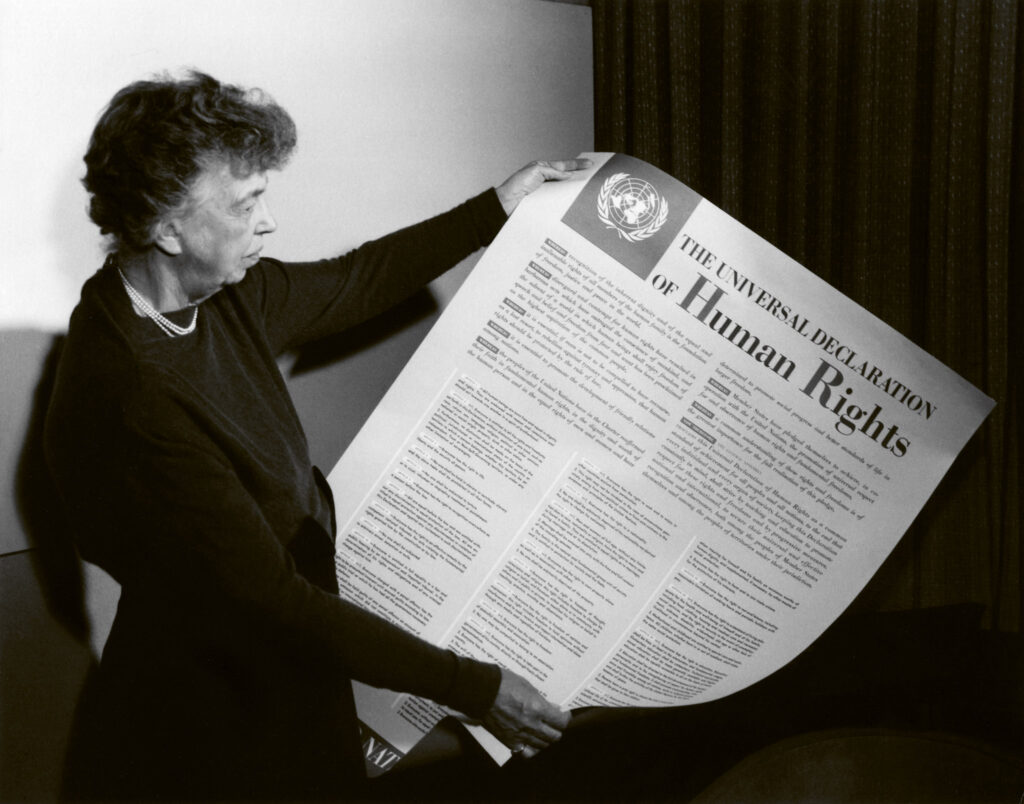
Democratic Evolution
By creating and, over the last three decades, implementing the Matrix of Human Rights Governance Networks, transnational progressives have used the UDHR, ICCPR, and ICESCR to advance a supranational corporatism and technocratic internationalism that threatens the democratic process and national sovereignty. Consistent with Huxley’s UNESCO Blueprint and vision for a universal declaration of human rights, they have built a system of universal values to facilitate evolutionary progress in opposition to national value systems. This effort undermines national sovereignty and democratic evolution.
According to this author, democratic evolution is marked by the articulation of philosophical views about the ideal social order that, over time, are embraced by political leaders, government officials, and the public. As these philosophical ideas are debated among citizens in private and, ultimately, in the political process, they coalesce into identifiable value systems, which, because they relate to the human person and society, can be labelled ‘humanist’.53 Ultimately, courts are called upon to determine the propriety or limits of each new system of humanist values. These court battles establish a legal framework for further social evolution. Although there are different varieties of humanism, in general, each of the humanist movements embodies ‘the perennial need of human beings to find significance in their lives, to integrate their personalities around some clear, consistent and compelling view of existence, and to seek definite and reliable methods in the solution of their problems’.54
Democratic evolution in the United States has consisted of 12 different humanist phases. Each of these humanist systems arose to solve a specific perceived cultural shortcoming of the prior humanist period. In essence, each humanist system represented an effort to create the ideal social order and thereby promote the happiness of citizens.
Creative humanism is based on the idea that the practice of the Christian faith and Christian values has a positive impact on the formation and restoration of democratic societies.
Deistic humanism is based on the idea that God, though responsible for creating the world and humans vested with certain inalienable rights and duties, is like a watchmaker, who, having once created the universe, no longer intervenes in daily life.
Civic humanism is based on the idea that social order is rooted in a love of country and in values that encourage sacrifice on behalf of the common good.
Social humanism is based on the idea that improving the lives of the lowest and most numerous class of citizens depends on the abilities, educational training, and work of an elite intellectual and creative class of individuals.
Scientific humanism is based on the idea that social order depends on the application of evidence-based scientific principles to the problems of human development and social life.
Transhumanism is based on the idea that technology can be used to overcome the biological limitations of man and improve the human condition.
Secular humanism is based on the idea that traditional religious beliefs and practices cannot be used as the basis of morality and decision-making in the public square.
Ethical humanism is based on the idea that humans require a non-theistic moral and ethical system of values upon which they can rely in order to bring justice and peace to the world.
Democratic humanism is based on the idea that positive human development can only be achieved through the free exercise of civil and political rights.
Evolutionary humanism is based on the idea that each person has the right to define his or her own concept of existence, of meaning, of the universe, and of the mystery of human life.
Integral humanism is based on the idea that the human person consists of both supernatural and temporal elements and that a person’s faith is an integral part of all aspects of his or her daily life.
Political humanism is based on the idea that elected officials should exercise their political power and regulatory authority to achieve equal access to human security and, if necessary, wealth re-distribution.55
At its core, democratic evolution is a religious process touching on what one theologian referred to as one’s ‘ultimate concern’, a definition of religion subsequently acknowledged by the United States Supreme Court.56 Under such an interpretation, because democracy is a process through which citizens pursue their ultimate concerns, democracy is a religious undertaking.
In essence, democratic evolution is the outcome of each citizen, alone or together with like-minded citizens, attempting to persuade others to share his or her ultimate concern or concerns. This reality raises two important issues. First, it is critical to realize those instances in which one has left the realm of persuasive speech or association and moved into the realm of coercive, anti-democratic speech or association. Second, if the government decides to limit coercive religious or political expression, one must determine whether such restrictions are legal. For example, in Europe, any restriction on the rights of association of individuals or groups must be ‘necessary in a democratic society in the interests of national security or public safety, for the prevention of disorder or crime, for the protection of health or morals or for the protection of the rights and freedoms of others’.57
The investigation as to whether a citizen or group of citizens is using coercive, rather than persuasive, means to realize his, her, or its ultimate concerns is evidence-based. It involves a thorough examination of the expressed philosophies, policies, and practices of individuals and their religious or political associations.

Norman Rockwell, Freedom from Fear (1943). Norman Rockwell Museum, Stockbridge, Massachusetts, USA. Freedom from fear is mentioned in the preamble of the UDHR PHOTO: Wikimedia Commons
It seems that, for now, an activist-driven political humanism is in the ascendent. Frustrated by conservative or populist resistance at the national level, transnational progressives are distorting and expanding the intended scope of the UDHR, ICCPR, and ICESCR to pressure governments, businesses, and supranational institutions to use the human security, ESG, and sustainable development agenda to build a global welfare state and spread progressive social and cultural values throughout the world.58 Fortunately, many young lawyers, law students, policy makers, and lawmakers now recognize this reality and are organizing at the national level to resist it.
The Ills as a Means for Promoting National Sovereignty and Democratic Evolution
In April 2023, a group of conservative and libertarian lawyers, law students, and law faculty from around the world launched the International Law and Liberty Society (ILLS), which now includes groups from Canada, the United Kingdom, France, Italy, Germany, Spain, Croatia, Albania, Hungary, Poland, Ukraine, Australia, Israel, Mexico, Brazil, Guatemala, South Korea, the Philippines, and the Republic of Georgia. At the conclusion of the meeting, the leaders signed an ILLS Statement of Mission and Principles, pursuant to which they agreed to promote the rule of law, natural law, individual liberty, personal responsibility, limited government, the separation of powers, judicial restraint, economic freedom, national sovereignty, subsidiarity, and the fundamental freedoms of freedom of conscience and religion, freedom of thought, belief, opinion, and expression, freedom of peaceful assembly, and freedom of association.
Even though the political, constitutional, and legal challenges and, thus, the objectives of the participating ILLS circles may vary from country to country, one important common denominator is ‘the need to safeguard, cherish, and transmit the respective cultural and constitutional heritage that includes a certain way of life, its virtues, and fundamental principles’.59 Keeping this common denominator in mind, the fundamental principles in the UDHR should be used to respect and protect human rights in the national context, not to undermine national identity and sovereignty.
NOTES
1 UNESCO, ‘Constitution (1945)’, UNESCO.org, www.unesco.org/en/legal-affairs/constitution, accessed 20 May 2025.
2 Julian Huxley, UNESCO: Its Purpose and Philosophy (UNESCO, 1946), https://unesdoc.unesco.org/ark:/48223/pf0000068197, accessed 20 May 2025.
3 Huxley, UNESCO: Its Purpose and Philosophy.
4 UNESCO, Records of the General Conference, First Session (UNESCO, 1946), https://unesdoc.unesco.org/ark:/48223/pf0000114580, accessed 20 May 2025.
5 Mark Goodale, ‘Seventy-Year-Old Views That Remain Contemporary’, The UNESCO Courier (3 October 2018), https://courier.unesco.org/en/articles/seventy-year-old-views-remain-contemporary#:~:text=This%20was%20precisely%20the%20mandate,unifying%20and%20unified’%20 global%20culture.
6 Goodale, ‘Seventy-Year-Old Views That Remain Contemporary’.
7 Jacques Maritain, ‘Philosophical Examination of Human Rights’, in: Human Rights: Comments and Interpretations (1948), 59, https://e-docs.eplo.int/phocadownloadpap/userupload/aportinou-eplo.int/Human%20rights%20 comments%20and%20interpretations.compressed.pdf.
8 Maritain, ‘Philosophical Examination of Human Rights’, 59.
9 Maritain, ‘Philosophical Examination of Human Rights’, 59.
10 Maritain, ‘Philosophical Examination of Human Rights’, 60.
11 Jacques Maritain, Education at the Crossroads (Yale University Press, 1942).
12 Julian Huxley, Religion without Revelation (Harper & Brothers, 1927).
13 Huxley, Religion without Revelation.
14 Huxley, Religion without Revelation.
15 Huxley, Religion without Revelation.
16 Huxley, Religion without Revelation, note 2, 7.
17 Huxley, Religion without Revelation, 8.
18 Huxley, Religion without Revelation, 10–11.
19 Huxley, Religion without Revelation, 11.
20 Huxley, Religion without Revelation, 13.
21 Huxley, Religion without Revelation.
22 Huxley, Religion without Revelation.
23 Huxley, Religion without Revelation.
24 Huxley, Religion without Revelation, 39.
25 Huxley, Religion without Revelation, 40.
26 Huxley, Religion without Revelation, 41.
27 John Fonte, ‘Liberal Democracy vs. Transnational Progressivism’, in Robert Wilson, Diversity and U.S. Foreign Policy (Routledge, 2004).
28 United Nations Development Programme, Human Development Report 1994: New Dimensions of Human Security (UNDP, 1994), https://hdr.undp.org/content/human-development-report-1994.
29 UNESCO, Human Security: Approaches and Challenges (UNESCO, 2008), https://unesdoc.unesco.org/ark:/48223/pf0000159307/PDF/159307eng.pdf.multi.
30 UNESCO, Human Security: Approaches and Challenges, xiii–ix.
31 UNESCO, ‘International Coalition of Inclusive and Sustainable Cities – ICCAR’, UNESCO.org, www.unesco.org/en/no-racism-no-discrimination/iccar, accessed 22 May 2025.
32 UNESCO, ‘International Coalition of Inclusive and Sustainable Cities – ICCAR’.
33 UNESCO, ‘International Coalition of Inclusive and Sustainable Cities – ICCAR’.
34 UNESCO, ‘International Coalition of Inclusive and Sustainable Cities – ICCAR’.
35 UNESCO, ‘International Coalition of Inclusive and Sustainable Cities – ICCAR’.
36 European Coalition of Cities Against Racism, ‘Don’t Let Europe Go Backwards! ECCAR General Conference 2024’, ECCAR, www.eccar.info/en/news/dont-let-europe-go-backwards-eccar-general- conference-2024, accessed 22 May 2025.
37 U.S. Department of State, ‘Launch of the U.S. Coalition of Cities Against Racism and Discrimination, 11 September 2013’, State. gov, https://2009-2017.state.gov/r/pa/prs/ ps/2013/09/214120.htm, accessed 22 May 2025.
38 UN General Assembly, ‘Universal Declaration of Human Rights, A/RES/217(III), 10 December 1948’, UN.org, www.un.org/en/about-us/universal-declaration-of-human-rights, accessed 22 May 2025.
39 UNESCO, ‘Management of Social Transformations (MOST) Programme’, UNESCO. org, www.unesco.org/en/management-social-transformations-most-programme?hub=67832, accessed 22 May 2025.
40 UNESCO, ‘Management of Social Transformations (MOST) Programme’.
41 UNESCO, ‘MOST Forum 2024: Navigating Governance Challenges for Inclusive Development’, UNESCO.org, www.unesco.org/en/articles/most-forum-2024-navigating-governance-challenges- inclusive-development?hub=67832, accessed 22 May 2025.
42 Gabriela Ramos, ‘Closing of the Forum’, UNESCO.org (2024), www.unesco.org/en/articles/most-forum-2024-navigating-governance-challenges-inclusive-development?hub=67832, accessed 22 May 2025.
43 Ramos, ‘Closing of the Forum’.
44 UN General Assembly, Universal Declaration of Human Rights, note 38.
45 UNESCO, ‘Ethics of Science and Technology and Bioethics’, UNESCO.org, www.unesco.org/en/ethics-science-technology, accessed 22 May 2025.
46 UNESCO, Universal Declaration of Bioethics and Human Rights (19 October 2006), UNESCO.org, https://unesdoc.unesco.org/ark:/48223/pf0000146180.
47 Paul Eidelberg, ‘The Temptation of Herbert Marcuse’, The Review of Politics (October 1969), 442–458, www.jstor.org/stable/1406593.
48 Herbert Marcuse, ‘Repressive Tolerance’, in: Robert Paul Wolff, Barrinton Moore, Jr., and Herbert Marcuse, A Critique of Pure Tolerance ([1965], 1969), 95–137, www.marcuse.org/herbert/publications/1960s/1965-repressive-tolerance- fulltext.html.
49 Marcuse, ‘Repressive Tolerance’.
50 Marcuse, ‘Repressive Tolerance’.
51 Marcuse, ‘Repressive Tolerance’.
52 James P Kelly, ‘The Matrix of Human Rights Governance Networks’, Engage (February 2008), https://fedsoc-cms-public.s3.amazonaws.com/update/pdf/shgEFpZFFe1xwhIeKS4urtbvBnQQi65CmgjsC1hr.pdf.
53 James Kelly, ‘Democratic Evolution and the Church of the United Nations’, Engage (June 2011), https://fedsoc-cms-public.s3.amazonaws.com/update/pdf/MCfjXKdwwhytr9DIUtxvhZWdEMSdNpmqbCEbIjzb.pdf.
54 Corliss Lamont, The Philosophy of Humanism, 1 (Fourth edition, Philosophical Library, 1957). https://archive.org/details/philosophyofhumanisme/ page/n1/mode/2up.
55 Kelly, ‘The Matrix of Human Rights Governance Networks’, note 52.
56 Ben Clements, ‘Defining Religion in the First Amendment: A Functional Approach’, Cornell Law Review, 74/3 (1989), 532, http://scholarship.law.cornell.edu/clr/vol74/iss3/4.
57 Council of Europe, Toolkit: Rights and liberties conferred by the Convention, Articles 8-11, www.coe.int/en/web/echr-toolkit/les-articles-8-a-11, accessed 28 May 2025.
58 James Kelly, ‘Building the Global Welfare State: The United Nations as Community Organizer’, Engage (June 2011), https://fedsoc-cms-public.s3.amazonaws.com/update/pdf/ MCfjXKdwwhytr9DIUtxvhZWdEMSdNpmqbCEbIjzb.pdf.
59 Lénárd Sándor, ‘Nanos gigantum humeris insidentes: The Establishment and Mission of the Barna Horváth Hungary Law and Liberty Circle’, Hungarian Conservative (26 January 2024), www.hungarianconservative.com/articles/philosophy/barna-horvath-law-and-liberty-circle_tradition_ humility_sovereignty_the-federalist-society/.
Related articles:

